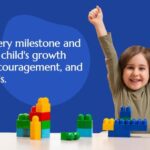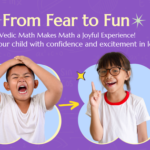Parenting early years can be an incredible journey! One moment your toddler seems content playing quietly with toys; then the next, they’re off exploring every inch of the house with endless energy and curiosity. Just when you think things have settled down for good, along comes another obstacle – turning that curiosity into something worthwhile that sticks.
No doubt about it – teaching little ones the difference between cats and dogs or trying to instill early literacy skills can be challenging, but flashcards offer a fun and engaging solution! Let us show how flashcards for toddlers can make learning fun both for themselves and you as teachers/parents/caregivers!
What Exactly Are Flashcards?
Flashcards may seem dull at first, with facts to memorize tucked between dull cards – but flashcards shouldn’t be taken that way! Think of flashcards more as little passports to a world of discovery – every card offers something exciting! Be it an apple picture or their initial letter name on there. These interactive learning devices make learning enjoyable and memorable!
Think of flashcards as your go-to learning companion: always there to turn everyday moments into opportunities for your child to explore new ideas. Though seemingly basic in design, the playing flashcards‘ simple nature hides its power.

By breaking information down into bite-size chunks and providing practice drills through repetition of flashcards’ messages, flashcards help young minds absorb knowledge. All this without realizing it and retaining it long term – they add fun and engagement into any learning session!
The Right Age to Incorporate Flashcards For Toddlers & Kids
As parents, we frequently ask ourselves when the “right time” to introduce solid foods or start potty training is. Unfortunately, there’s no one-size-fits-all answer when it comes to flashcards; but with their wide window of opportunity it might just be right.

Flashcards don’t need to wait until your child can speak full sentences before being introduced to them; many parents start as early as six months, using simple, colorful images with which your infant might engage and learn something. Though it might seem ambitious at such an early stage, his or her brain will absorb any piece of knowledge being provided to them!
The Advantages of Flashcards for Children and Toddlers
Flashcard learning has several benefits that improve a child’s memory and knowledge. It helps your child comprehend information more readily because of its widespread use. It displays a child’s ability to retain visual information, which helps with pattern identification and comprehension. Thus, the following are the benefits of using baby flashcards with toddlers and kids:
Enhances Development of the Cognitive Process
Emily, a working mother who’s always searching for effective ways to enhance Aryan’s learning. She began using flashcards to teach Carl about various animals and their sounds; over time she saw that his identification improved as did his associations between certain sounds and animals thanks to repeated exposure provided by flashcards.
Flashcards can be more than mere visual aids; they’re powerful tools for cognitive development in children. Their repetitive nature reinforces memory retention, making recall of information simpler for youngsters.
Develops Photographic Memory
Veronica was struggling to teach Gemma, aged four at the time, the names of fruits. Unfortunately, she would often forget or mix them up and this led Veronica to introduce baby flashcards into their routine – much to her surprise, Gemma quickly started remembering them without needing help later.

Photographic memory (eidetic) refers to an ability to retain detailed information upon viewing something only once. Flashcards for toddlers offer an engaging visual memory training tool; Gemma’s improved recall abilities prove their efficacy in developing photographic memory.
Enhances Linguistic Proficiency
Candice, a software engineer, sought to provide Liam, her son an edge when learning languages. She began with English flashcards before gradually introducing other languages. Gradually Liam began becoming fluent in all three, delighting his teachers and peers with his linguistic talents.
Language development is an essential aspect of early childhood education, and flashcards play an integral part. By regularly exposing their children to new words and phrases through flashcards, parents can help expand vocabulary while strengthening language abilities. Candice experience teaching Liam three languages with flashcards for kids illustrates their value within multilingual households like those commonly found in India.
Creates Eye Stimulation
Frank found himself struggling to keep Bonnie engaged during study sessions with him, regardless of what methods or approaches were tried. She would quickly lose interest and start fidgeting. On one particular day, however, Frank tried introducing flashcards featuring animals, Bonnie liked to make the study session last longer than normal. Frank immediately became fascinated and her focus held.

Flashcards offer an engaging alternative for children like Aanya who may struggle with traditional learning methods; through including flashcards into her study routine, parents can help their child build focus and concentration – skills necessary for academic success.
Develops Self-Belief
Philip noticed his son Ian was often reluctant to speak up during class discussions despite knowing all the answers, lacking confidence to participate actively and gain participation points. Philip decided to use flashcards with Ian’s school lessons so as to make learning less intimidating for him; gradually but steadily Ian began building confidence until soon enough he became one of the most engaged participants in his classroom!
Confidence is integral to children’s overall development and flashcards can play an instrumental part in instilling it. By mastering information presented through flashcards for toddlers, children like Ian can gain a sense of satisfaction that boosts both self-esteem and academic achievements alike.
Conclusion
Parenting can be an immense whirlwind of decisions when it comes to your child’s education. From birth, you are constantly bombarded with advice about giving them the best start possible in life. Flashcards might appear like just another tool in an educational toolbox; but as we’ve explored, they provide more than that: They make learning fun! Turn learning into an adventure; let your natural curiosity connect with discovery!
Are you ready for an engaging and stimulating journey? Color Pencil provides a vast array of picture flashcards set specially tailored to cater for each child’s developmental needs, making learning effective yet pleasurable!
FAQs
1) Are flashcards effective?
Yes, flashcards are highly effective! They help reinforce memory through repetition, making them a powerful tool for learning new concepts and vocabulary. Whether it’s colors, shapes, or words, flashcards can turn learning into a fun and interactive experience for kids.
2) What age to start flash cards?
You can start using flashcards with your child as early as 6 months old. At this stage, focus on simple, colorful images to stimulate visual and cognitive development. As they grow, you can introduce more complex concepts tailored to their learning pace.
3) What is the importance of flash cards?
Flashcards are crucial for building a strong foundation in early learning. They enhance memory, improve concentration, and make learning engaging. By breaking down information into bite-sized pieces, flashcards make it easier for children to absorb and retain knowledge, setting the stage for future academic success.
Last modified: November 27, 2024










The information is quite helpful and has made me purchase flashcards for my child! Best decision ever. Would recommend the same to other parents too!